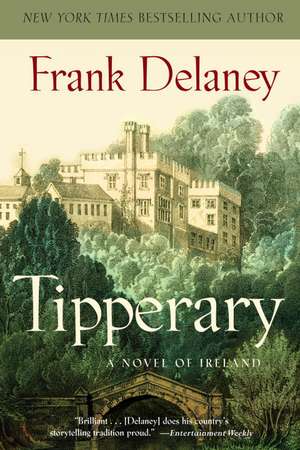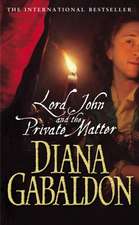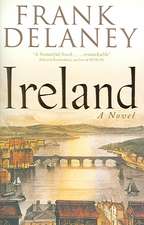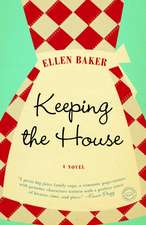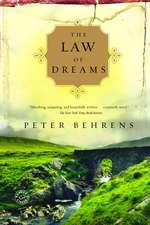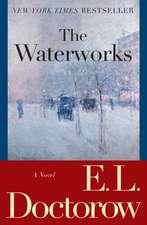Tipperary: A Novel of Ireland
Autor Frank DeLaneyen Limba Engleză Paperback – 30 iun 2008
Born into a respected Irish-Anglo family in 1860, Charles loves his native land and its long-suffering but irrepressible people. As a healer, he travels the countryside dispensing traditional cures while soaking up stories and legends of bygone times–and witnessing the painful, often violent birth of land-reform measures destined to lead to Irish independence.
At the age of forty, summoned to Paris to treat his dying countryman–the infamous Oscar Wilde–Charles experiences the fateful moment of his life. In a chance encounter with a beautiful and determined young Englishwoman, eighteen-year-old April Burke, he is instantly and passionately smitten–but callously rejected. Vowing to improve himself, Charles returns to Ireland, where he undertakes the preservation of the great and abandoned estate of Tipperary, in whose shadow he has lived his whole life–and which, he discovers, may belong to April and her father.
As Charles pursues his obsession, he writes the “History” of his own life and country. While doing so, he meets the great figures of the day, including Charles Parnell, William Butler Yeats, and George Bernard Shaw. And he also falls victim to less well-known characters–who prove far more dangerous. Tipperary also features a second “historian:” a present-day commentator, a retired and obscure history teacher who suddenly discovers that he has much at stake in the telling of Charles’s story.
In this gloriously absorbing and utterly satisfying novel, a man’s passion for the woman he loves is twinned with his country’s emergence as a nation. With storytelling as sweeping and dramatic as the land itself, myth, fact, and fiction are all woven together with the power of the great nineteenth-century novelists. Tipperary once again proves Frank Delaney’s unrivaled mastery at bringing Irish history to life.
Praise for Frank Delaney’s TIPPERARY:
“[T]he narrative moves swiftly and surely…A sort of Irish Gone With the Wind, marked by sly humor, historical awareness and plenty of staying power.” — Kirkus Reviews
“[A]nother meticulously researched journey…Delaney’s careful scholarship and compelling storytelling bring it uniquely alive. Highly recommended.” — Library Journal (starred)
“Sophisticated and creative.” — Booklist
“Delaney’s confident storytelling and quirky characterizations enrich a fascinating and complex period of Irish history.” — Publishers Weekly
“Read just a few sentences of Frank Delaney’s writing and you’ll see why National Public Radio called him ‘the world’s most eloquent man.’” — Kirkus Reviews, “Big Book Guide 2007”
From the Hardcover edition.
Preț: 120.78 lei
Nou
Puncte Express: 181
Preț estimativ în valută:
23.11€ • 24.10$ • 19.21£
23.11€ • 24.10$ • 19.21£
Carte disponibilă
Livrare economică 28 februarie-14 martie
Preluare comenzi: 021 569.72.76
Specificații
ISBN-13: 9780812975949
ISBN-10: 0812975944
Pagini: 445
Ilustrații: 4 MAPS
Dimensiuni: 141 x 211 x 25 mm
Greutate: 0.43 kg
Ediția:Reprint
Editura: Random House Trade
Seria A Novel of Ireland
ISBN-10: 0812975944
Pagini: 445
Ilustrații: 4 MAPS
Dimensiuni: 141 x 211 x 25 mm
Greutate: 0.43 kg
Ediția:Reprint
Editura: Random House Trade
Seria A Novel of Ireland
Notă biografică
Frank Delaney is the author of the New York Times bestselling novel Ireland as well as Simple Courage: The Story of S.S.Flying Enterprise–and One of the Greatest Naval Rescues in History. A former judge for the Man Booker Prize, Delaney enjoyed a prominent career in BBC broadcasting before becoming a full-time writer. Born in Tipperary, Ireland, he now lives in New York City and Connecticut.
From the Hardcover edition.
From the Hardcover edition.
Extras
Chapter 1
Be careful about me. Be careful about my country and my people and how we tell our history. We Irish prefer embroideries to plain cloth. If we are challenged about this tendency, we will deny it and say grimly: “We have much to remember.”
“But,” you may argue, “isn’t memory at least unreliable? And often a downright liar?”
Maybe. To us Irish, though, memory is a canvas—stretched, primed, and ready for painting on. We love the “story” part of the word “history,” and we love it trimmed out with color and drama, ribbons and bows. Listen to our tunes, observe a Celtic scroll: we always decorate our essence. This is not a matter of behavior; it is our national character.
As a consequence of this ornamenting, we are accused of revising the past. People say that we reinvent the truth, especially when it comes to the history of our famous oppression by England, the victimhood that has become our great good fortune.
And do we? Do we embellish that seven hundred years since the Norman barons sailed to our southeast shores? Do we magnify those men in silver armor, though they stood only five feet six inches tall? Do we make epic those little local wars, often fought across rivers no more than some few feet wide? Do we render monumental the tiny revolutions fought on cabbage patches by no more than dozens of men with pitchforks and slings?
Perhaps we do. And why should we not? After all, what is history but one man’s cloak cut from the beautiful cloth of Time?
Customarily, history is written by the victors; in Ireland the vanquished wrote it too and wrote it more powerfully. That is why I say, “Be careful about my country and how we tell our history.” And in this account of my life as I have so far lived it, you will also have to make up your own mind about whether I too indulge in such invention, in particular about myself.
All who write history have reasons for doing so, and there is nothing so dangerous as a history written for a reason of the heart. The deeper the reason, the more unreliable the history; that is why I say, “Be careful about me.”
Those paragraphs, written in a looping brown script, sat undisturbed for seventy-five years in a large wooden chest. They lay beneath a pile of clothing: a lady’s green gown; a heavier and more ornate green brocade coat, with cream silk finishings; some brown leather gauntlets; a small velvet sack containing tresses of brown hair; and a pair of lady’s buttoned boots.
The longtime owner of this trunk, an uncaring man with a runny nose, knew nothing about it or where it came from. It had been sitting for some years in a corner of the shed attached to his hardware premises and, ungifted by curiosity, he had never opened it. To this day he can’t recall anything other than that he “bought it from a pair of tinkers,” whose tribe had been buying and selling antique furniture and junk all over Ireland in the early 1990s. The travelers, when traced and asked, said that they “couldn’t remember it,” that they often bought and sold a vanload of “stuff” (or, as they pronounce it, “shtuff”) in that town.
Now the chest rests in an attic of a county library in the south of Ireland. The man who donated it bought it from the hardware shop; he recognized it from a description he had been given by a family friend who had often talked about it and who had searched for it.
As a piece of furniture or an antique, it has little interest. Made of oak, with sharp, squared corners, it has a simple brass lock and two ordinary, serviceable handles; and when the lid is raised, the timbers still yield a faint, musty smell, that familiar incense of the past—probably from the fabric of the clothing. However, the antique objects, together with the written contents, assembled with other papers and letters, will soon form an exhibit in the museum section of the library.
It is expected to arouse strong interest—on account of the main document and the story it tells. In a great personal drama, the two principal characters played out their lives against a backdrop of Ireland’s most crucial historical period.
The narrator with the sloping handwriting was a man named Charles O’Brien, part wanderer, part journalist, many parts lover. After he wrote those opening “Be careful” sentences, he loaded his document so copiously with details of his world that it has been entirely possible to trace him and his story, and the lives of those he knew or encountered, and the forces and mysteries that became part of his life.
His document, apart from the slightly crumpled top and bottom pages, has remained in excellent condition. Although time and the weight of the clothing in the oak chest compressed the pages, Mr. O’Brien had been careful (and wealthy enough) to use high-quality writing paper, and he wrote with expensive ink, which did not fade; when even the innermost pages were gingerly pulled apart, they lost none of their legibility.
The handwriting helps—his big-handed script had no affectations; every word he wrote is rewardingly legible. As is his style, and in this, Mr. O’Brien was also a man of his time. Other than a breaking down of sentence length and an occasional formality, few major permanent changes have occurred in English writing fashions since the middle of the nineteenth century. The writers of the period, such as Robert Louis Stevenson (who lived from 1850 to 1894), could have been writing today, so fresh seems their general idiom.
Directly after his opening apologia, Mr. O’Brien tells the first of his many tales, a vivid account of an incident from his childhood.
I commence writing this volume (whose genesis and purpose I will presently explain) with a memory that haunts me, and that blazes with the fire at the core of Ireland’s history during my early lifetime— the struggle over land.
This report may seem to come from the storehouse of distant recollection, but it has the higher value of immediacy because, at my father’s request, I began writing it directly we reached home on the day in question. Save for adjusting boyish errors and excesses, and maturing the style into adult expression, I have not tampered with the account since I wrote it, in June 1869.
I had just reached my ninth birthday. My father and I had been visiting Mr. and Mrs. Treece, near neighbors and well-known to my parents. They owned a good-sized farm, which had been given to the Treece family for helping Oliver Cromwell on his fiery rampage through Ireland in the 1650’s.
Mrs. Treece seemed to like me. I remember her as lovely, and I know from my parents’ comments that she was considered a great beauty— tall, full-figured, and with a slight snort when she laughed. (My father often made her laugh; my father was a benign and humorous man.) Mr. Treece frightened me; I never found his jokes amusing, and he had that disconcerting trait of making an outrageous assertion without regard to its truth.
“All men who are fair-haired as boys tend to go mad in later life,” he said to me that day. I may have doubted him—but I wished for many days thereafter that I had my brother Euclid’s coal-black, rod- straight hair, instead of my own Viking curls.
As we departed their doorstep, Mr. Treece suddenly said to my father, “Bernard, I think I’ll ride alongside of you—I have a bit of business happening out the road and I might need you to witness it.”
We waited in his cobblestoned yard while he saddled up a great mare, close to eighteen hands high. Down the avenue, out through the gates, he rode along beside us, chatting down to my father; Barney, lunging between the shafts of our yellow pony-trap, wanted to race Mr. Treece’s horse.
The dampness of the morning had now cleared, with the clouds in those formations that I find unique to Tipperary—big white fleeces drifting across a powdery blue sky. A mile or so along the road to Cashel, Mr. Treece said, “We’re down here” and spurred his horse. My father hesitated as though he might not follow; he actually halted the pony. Then he changed his mind and we swung into a lane behind Mr. Treece and his horse’s rump.
Around a bend, under some trees, the lane ended and we rode on to a wide place of open grass bordered by the woods. My father said, “Oh damn-and-blast” and pulled up Barney so hard that I was pitched forward on the leather seats; and my father, still talking to himself, said, “Huh. I was afraid this was what the bugger meant.”
Straight ahead, a knot of people milled around a long, low house with a thatched roof and whitewashed walls, the kind of dwelling very common in our countryside. Two or three apple trees stood near a small wall that confined a little garden in front of the red door. Outside the house, men in uniform, some on foot and some on horseback, swirled in a commotion. My father breathed, “They’ve brought in the soldiers. Boys-oh-dear!”
Other men, big-boned laborers, backed up two huge, head-plunging horses with flowing manes until their large, high-sided farm cart met the low garden wall. The men began to unload the cart. First came some heavy wooden poles, which others began to set up in a great, high tripod; next, they hauled from the cart a rattling, clinking length of heavy chain, which they attached to the tripod’s neck. Finally, three of the men jumped on the cart and began to push and haul. In a moment or two, a huge wooden beam slid from the cart onto the little wall. It then eased down into the garden, where a workman leaned against it, to keep it in balance against the wall.
At that, a woman of about my mother’s age in a drab frock burst from the doorway, screaming. At full speed she attacked the workman near the beam with her fists. She hauled him, she kicked him, she pulled his hair—and she wrestled him to the ground beside the big wooden column. Other men grabbed the huge beam and prevented it from falling over. Two boys, one about sixteen and one close in age to myself, now ran out and joined in to help the woman, whom I presumed to be their mother.
Mr. Treece rode forward. My father muttered to himself, “Oh, typical, typical. The whip’ll be next, I suppose.” And, indeed, Mr. Treece had been carrying a long whip in his hand as he rode along beside us. (I remember that I thought: Why does he need it? My father never carries as much as a riding-crop—he does it all, he says, with his knees, “as a horseman should.”)
The boys retreated a pace or two, and the policemen in their dark tunics and the soldiers in their red tried to haul the woman off the man whom she was beating. When Mr. Treece shouted, they stood back to make room for him. Mr. Treece rode in and, leaning across the little wall, began to lash the woman and the two boys with his whip. He cut the woman about the face and head, he lashed the boys’ faces and their bare legs and their heads. When his whiplash left a stripe-mark on the wooden beam, even the uniformed men recoiled.
“And you want me to witness this, George Treece?” said my father to himself. “And you want me to witness this?”
Now Mr. Treece rode his horse into the pretty little cottage garden, and when he reached the kicking, screaming woman, he not only rained blows on her, he tried to pick his horse’s legs across the man and ride the hooves upon the woman.
She screeched, and he lashed her again with the whip many times. When she tried to grab the lash, she missed and fell; then she scrambled to her feet and ran into the house, her two boys after her. Mr. Treece called “Get up” to the man on the ground and pulled his horse back. The man arose and seemed rueful but none too injured; he stepped out of the garden and over to where the two big drays swished their tails.
By this time I had been transfixed and could not tear my eyes away— from a scene the likes of which I had never imagined, much less encountered. My father laid his hand on my head and said, “Home?” I did not look at him and he said, in a change-of-mind tone, “No. Maybe you’re the one who should be the witness,” and we stayed; indeed, he even edged a little closer and swung the pony-trap around for a better view.
Now I saw another player in the drama, a man of about my father’s age or older. He stood some twenty yards back from the proceedings, leaning against a tree, seemingly detained there by one of the policemen. When I had a better view, I saw that this man used a wooden crutch; sometime, somewhere, he had lost a leg. He was shaking his head, as if unable to come to grips with Life at that moment.
As I watched him, he began to shout, and the policeman tried to quiet him. Mr. Treece turned around on his horse, saw the man, spurred the animal over to him, and fetched the shouter a lash down across the head and face with the whip, and then another lash. The man would have reached to grab the whip but his uniformed custodian prevented him, and in any case Mr. Treece, generally excited and red-faced, rode back to the front of the house.
“Set it up,” he shouted at the knot of men. “What’s keeping you back? Set it up!”
The men bustled to assemble the apparatus. They hung the chain down between the poles of the tripod where it ended in a hook. Next, they manhandled the great column along the ground to a point where they could hook the chain into a ring on the wooden beam. When they had made the connection and reeled in some lengths of chain, the post swung clear of the ground like a long rectangular pendulum. They dragged and shoved until the tripod stood right against the wall of the house, near one of the small windows.
Sweating with exertion, the working gang hauled the swinging wooden beam—which seemed at least three feet thick—back from the tripod. For a moment they held it there, out at an angle. Then Mr. Treece shouted, “Let her go,” and they released the ram. It swung forward and battered into the window of the house and the wall beside.
My father muttered, “Oh, great Lord!”
Glass crashed and tinkled; the outside of the building fell apart in a blurt of whitewash and brown mortar; I was surprised and alarmed at how much of the house burst under that one swinging stroke. As the men steadied the ram, something flew from the doorway and they reeled back, yelling. Mr. Treece’s horse bucked as if stung.
Mr. Treece shouted. “The bitch! What is that?”
A policeman shouted, “Boiling porridge, sir”—someone in the house had hurled the contents of an oatmeal pot through the doorway.
“Draw your guns,” shouted Mr. Treece, and with only a short hesitation, all the military and all the police drew their guns with a rattle and held them ready, aimed at the cottage door. A silence fell. Portions of the wall continued to crumble. I looked at the man beneath the tree; he had begun to weep. His tears and his gasping, dismayed face seemed very different from the sadness of my father when my grandmother had died, or when he watched Mother sing his “beautiful Bellini.”
“Angle her and go again,” Mr. Treece shouted. Beneath a hedge of pointed guns the men rearranged the tripod’s angle to edge it farther along the wall. Once more they held back the thick battering ram and released it. This time, its impact went straight through the wall. The hole gaped so wide that we could see the woman inside the house, her face lined with blood from the whip’s lashes, which she tried to wipe away with a sleeve.
From the Hardcover edition.
Be careful about me. Be careful about my country and my people and how we tell our history. We Irish prefer embroideries to plain cloth. If we are challenged about this tendency, we will deny it and say grimly: “We have much to remember.”
“But,” you may argue, “isn’t memory at least unreliable? And often a downright liar?”
Maybe. To us Irish, though, memory is a canvas—stretched, primed, and ready for painting on. We love the “story” part of the word “history,” and we love it trimmed out with color and drama, ribbons and bows. Listen to our tunes, observe a Celtic scroll: we always decorate our essence. This is not a matter of behavior; it is our national character.
As a consequence of this ornamenting, we are accused of revising the past. People say that we reinvent the truth, especially when it comes to the history of our famous oppression by England, the victimhood that has become our great good fortune.
And do we? Do we embellish that seven hundred years since the Norman barons sailed to our southeast shores? Do we magnify those men in silver armor, though they stood only five feet six inches tall? Do we make epic those little local wars, often fought across rivers no more than some few feet wide? Do we render monumental the tiny revolutions fought on cabbage patches by no more than dozens of men with pitchforks and slings?
Perhaps we do. And why should we not? After all, what is history but one man’s cloak cut from the beautiful cloth of Time?
Customarily, history is written by the victors; in Ireland the vanquished wrote it too and wrote it more powerfully. That is why I say, “Be careful about my country and how we tell our history.” And in this account of my life as I have so far lived it, you will also have to make up your own mind about whether I too indulge in such invention, in particular about myself.
All who write history have reasons for doing so, and there is nothing so dangerous as a history written for a reason of the heart. The deeper the reason, the more unreliable the history; that is why I say, “Be careful about me.”
Those paragraphs, written in a looping brown script, sat undisturbed for seventy-five years in a large wooden chest. They lay beneath a pile of clothing: a lady’s green gown; a heavier and more ornate green brocade coat, with cream silk finishings; some brown leather gauntlets; a small velvet sack containing tresses of brown hair; and a pair of lady’s buttoned boots.
The longtime owner of this trunk, an uncaring man with a runny nose, knew nothing about it or where it came from. It had been sitting for some years in a corner of the shed attached to his hardware premises and, ungifted by curiosity, he had never opened it. To this day he can’t recall anything other than that he “bought it from a pair of tinkers,” whose tribe had been buying and selling antique furniture and junk all over Ireland in the early 1990s. The travelers, when traced and asked, said that they “couldn’t remember it,” that they often bought and sold a vanload of “stuff” (or, as they pronounce it, “shtuff”) in that town.
Now the chest rests in an attic of a county library in the south of Ireland. The man who donated it bought it from the hardware shop; he recognized it from a description he had been given by a family friend who had often talked about it and who had searched for it.
As a piece of furniture or an antique, it has little interest. Made of oak, with sharp, squared corners, it has a simple brass lock and two ordinary, serviceable handles; and when the lid is raised, the timbers still yield a faint, musty smell, that familiar incense of the past—probably from the fabric of the clothing. However, the antique objects, together with the written contents, assembled with other papers and letters, will soon form an exhibit in the museum section of the library.
It is expected to arouse strong interest—on account of the main document and the story it tells. In a great personal drama, the two principal characters played out their lives against a backdrop of Ireland’s most crucial historical period.
The narrator with the sloping handwriting was a man named Charles O’Brien, part wanderer, part journalist, many parts lover. After he wrote those opening “Be careful” sentences, he loaded his document so copiously with details of his world that it has been entirely possible to trace him and his story, and the lives of those he knew or encountered, and the forces and mysteries that became part of his life.
His document, apart from the slightly crumpled top and bottom pages, has remained in excellent condition. Although time and the weight of the clothing in the oak chest compressed the pages, Mr. O’Brien had been careful (and wealthy enough) to use high-quality writing paper, and he wrote with expensive ink, which did not fade; when even the innermost pages were gingerly pulled apart, they lost none of their legibility.
The handwriting helps—his big-handed script had no affectations; every word he wrote is rewardingly legible. As is his style, and in this, Mr. O’Brien was also a man of his time. Other than a breaking down of sentence length and an occasional formality, few major permanent changes have occurred in English writing fashions since the middle of the nineteenth century. The writers of the period, such as Robert Louis Stevenson (who lived from 1850 to 1894), could have been writing today, so fresh seems their general idiom.
Directly after his opening apologia, Mr. O’Brien tells the first of his many tales, a vivid account of an incident from his childhood.
I commence writing this volume (whose genesis and purpose I will presently explain) with a memory that haunts me, and that blazes with the fire at the core of Ireland’s history during my early lifetime— the struggle over land.
This report may seem to come from the storehouse of distant recollection, but it has the higher value of immediacy because, at my father’s request, I began writing it directly we reached home on the day in question. Save for adjusting boyish errors and excesses, and maturing the style into adult expression, I have not tampered with the account since I wrote it, in June 1869.
I had just reached my ninth birthday. My father and I had been visiting Mr. and Mrs. Treece, near neighbors and well-known to my parents. They owned a good-sized farm, which had been given to the Treece family for helping Oliver Cromwell on his fiery rampage through Ireland in the 1650’s.
Mrs. Treece seemed to like me. I remember her as lovely, and I know from my parents’ comments that she was considered a great beauty— tall, full-figured, and with a slight snort when she laughed. (My father often made her laugh; my father was a benign and humorous man.) Mr. Treece frightened me; I never found his jokes amusing, and he had that disconcerting trait of making an outrageous assertion without regard to its truth.
“All men who are fair-haired as boys tend to go mad in later life,” he said to me that day. I may have doubted him—but I wished for many days thereafter that I had my brother Euclid’s coal-black, rod- straight hair, instead of my own Viking curls.
As we departed their doorstep, Mr. Treece suddenly said to my father, “Bernard, I think I’ll ride alongside of you—I have a bit of business happening out the road and I might need you to witness it.”
We waited in his cobblestoned yard while he saddled up a great mare, close to eighteen hands high. Down the avenue, out through the gates, he rode along beside us, chatting down to my father; Barney, lunging between the shafts of our yellow pony-trap, wanted to race Mr. Treece’s horse.
The dampness of the morning had now cleared, with the clouds in those formations that I find unique to Tipperary—big white fleeces drifting across a powdery blue sky. A mile or so along the road to Cashel, Mr. Treece said, “We’re down here” and spurred his horse. My father hesitated as though he might not follow; he actually halted the pony. Then he changed his mind and we swung into a lane behind Mr. Treece and his horse’s rump.
Around a bend, under some trees, the lane ended and we rode on to a wide place of open grass bordered by the woods. My father said, “Oh damn-and-blast” and pulled up Barney so hard that I was pitched forward on the leather seats; and my father, still talking to himself, said, “Huh. I was afraid this was what the bugger meant.”
Straight ahead, a knot of people milled around a long, low house with a thatched roof and whitewashed walls, the kind of dwelling very common in our countryside. Two or three apple trees stood near a small wall that confined a little garden in front of the red door. Outside the house, men in uniform, some on foot and some on horseback, swirled in a commotion. My father breathed, “They’ve brought in the soldiers. Boys-oh-dear!”
Other men, big-boned laborers, backed up two huge, head-plunging horses with flowing manes until their large, high-sided farm cart met the low garden wall. The men began to unload the cart. First came some heavy wooden poles, which others began to set up in a great, high tripod; next, they hauled from the cart a rattling, clinking length of heavy chain, which they attached to the tripod’s neck. Finally, three of the men jumped on the cart and began to push and haul. In a moment or two, a huge wooden beam slid from the cart onto the little wall. It then eased down into the garden, where a workman leaned against it, to keep it in balance against the wall.
At that, a woman of about my mother’s age in a drab frock burst from the doorway, screaming. At full speed she attacked the workman near the beam with her fists. She hauled him, she kicked him, she pulled his hair—and she wrestled him to the ground beside the big wooden column. Other men grabbed the huge beam and prevented it from falling over. Two boys, one about sixteen and one close in age to myself, now ran out and joined in to help the woman, whom I presumed to be their mother.
Mr. Treece rode forward. My father muttered to himself, “Oh, typical, typical. The whip’ll be next, I suppose.” And, indeed, Mr. Treece had been carrying a long whip in his hand as he rode along beside us. (I remember that I thought: Why does he need it? My father never carries as much as a riding-crop—he does it all, he says, with his knees, “as a horseman should.”)
The boys retreated a pace or two, and the policemen in their dark tunics and the soldiers in their red tried to haul the woman off the man whom she was beating. When Mr. Treece shouted, they stood back to make room for him. Mr. Treece rode in and, leaning across the little wall, began to lash the woman and the two boys with his whip. He cut the woman about the face and head, he lashed the boys’ faces and their bare legs and their heads. When his whiplash left a stripe-mark on the wooden beam, even the uniformed men recoiled.
“And you want me to witness this, George Treece?” said my father to himself. “And you want me to witness this?”
Now Mr. Treece rode his horse into the pretty little cottage garden, and when he reached the kicking, screaming woman, he not only rained blows on her, he tried to pick his horse’s legs across the man and ride the hooves upon the woman.
She screeched, and he lashed her again with the whip many times. When she tried to grab the lash, she missed and fell; then she scrambled to her feet and ran into the house, her two boys after her. Mr. Treece called “Get up” to the man on the ground and pulled his horse back. The man arose and seemed rueful but none too injured; he stepped out of the garden and over to where the two big drays swished their tails.
By this time I had been transfixed and could not tear my eyes away— from a scene the likes of which I had never imagined, much less encountered. My father laid his hand on my head and said, “Home?” I did not look at him and he said, in a change-of-mind tone, “No. Maybe you’re the one who should be the witness,” and we stayed; indeed, he even edged a little closer and swung the pony-trap around for a better view.
Now I saw another player in the drama, a man of about my father’s age or older. He stood some twenty yards back from the proceedings, leaning against a tree, seemingly detained there by one of the policemen. When I had a better view, I saw that this man used a wooden crutch; sometime, somewhere, he had lost a leg. He was shaking his head, as if unable to come to grips with Life at that moment.
As I watched him, he began to shout, and the policeman tried to quiet him. Mr. Treece turned around on his horse, saw the man, spurred the animal over to him, and fetched the shouter a lash down across the head and face with the whip, and then another lash. The man would have reached to grab the whip but his uniformed custodian prevented him, and in any case Mr. Treece, generally excited and red-faced, rode back to the front of the house.
“Set it up,” he shouted at the knot of men. “What’s keeping you back? Set it up!”
The men bustled to assemble the apparatus. They hung the chain down between the poles of the tripod where it ended in a hook. Next, they manhandled the great column along the ground to a point where they could hook the chain into a ring on the wooden beam. When they had made the connection and reeled in some lengths of chain, the post swung clear of the ground like a long rectangular pendulum. They dragged and shoved until the tripod stood right against the wall of the house, near one of the small windows.
Sweating with exertion, the working gang hauled the swinging wooden beam—which seemed at least three feet thick—back from the tripod. For a moment they held it there, out at an angle. Then Mr. Treece shouted, “Let her go,” and they released the ram. It swung forward and battered into the window of the house and the wall beside.
My father muttered, “Oh, great Lord!”
Glass crashed and tinkled; the outside of the building fell apart in a blurt of whitewash and brown mortar; I was surprised and alarmed at how much of the house burst under that one swinging stroke. As the men steadied the ram, something flew from the doorway and they reeled back, yelling. Mr. Treece’s horse bucked as if stung.
Mr. Treece shouted. “The bitch! What is that?”
A policeman shouted, “Boiling porridge, sir”—someone in the house had hurled the contents of an oatmeal pot through the doorway.
“Draw your guns,” shouted Mr. Treece, and with only a short hesitation, all the military and all the police drew their guns with a rattle and held them ready, aimed at the cottage door. A silence fell. Portions of the wall continued to crumble. I looked at the man beneath the tree; he had begun to weep. His tears and his gasping, dismayed face seemed very different from the sadness of my father when my grandmother had died, or when he watched Mother sing his “beautiful Bellini.”
“Angle her and go again,” Mr. Treece shouted. Beneath a hedge of pointed guns the men rearranged the tripod’s angle to edge it farther along the wall. Once more they held back the thick battering ram and released it. This time, its impact went straight through the wall. The hole gaped so wide that we could see the woman inside the house, her face lined with blood from the whip’s lashes, which she tried to wipe away with a sleeve.
From the Hardcover edition.
Descriere
The "New York Times"-bestselling author of "Ireland" returns to the saga of his strife-torn nation with an authentic story of love and legacy as sweeping and dramatic as the land itself.
